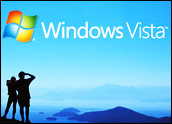The Defense Department (DoD) is blocking access to 13 Web sites, including MySpace and YouTube. Personnel use of popular social networking and entertainment sites is siphoning too much of its network bandwidth and creating too many security holes, the department said.
The Defense Department has seen too much of its vast network’s resources being drained for non-military uses, U.S. Army Gen. B.B. Bell said in a communique dated May 11.
“The Department of Defense has a growing concern regarding our unclassified DoD Internet, known as the NIPRNet (Non-Classified Internet Protocol Router Network),” wrote Bell. “The commander of DoD’s Joint Task Force, Global Network Operations (JTF-GNO) has noted a significant increase in use of DoD network resources tied up by individuals visiting certain recreational Internet sites.”
The JTF-GNO’s directive applies only to military computers and networks. Personnel are not being barred from accessing the sites from their own computers that access the Internet through private Internet service providers (ISPs).
The Blacklisted 13
The “operational directive message” that went into effect Monday bars Defense Department computers from accessing MySpace.com, YouTube.com, Metacafe, iFilm, StupidVideos, FileCabi, BlackPlanet, Hi5, Pandora, MTV.com, 1.fm, Live365 and Photobucket.
Critics quickly accused the government of attempting to thwart freedom of speech, but Tim Madden, public affairs officer for the JTF-GNO, said the directive is entirely based on network security and resource concerns.
“This is a proactive measure that’s intended to maximize the availability of DoD network resources to support DoD missions, and it doesn’t prohibit military or DoD civilian personnel from accessing those sites from another computer,” Madden told TechNewsWorld. “What we need to do in providing command and control for the GIG (the military’s Global Information Grid) is ensure timely and secure Net-centric capabilities across strategic operational and tactical boundaries.”
All About the Impact
The 13 sites named in the directive were chosen for blockage after a comprehensive review of “usage trends,” said Madden. The decision about which sites to ban was based on what impact they may have on the GIG, said Madden. “It’s not just which are the most popular,” he explained. “It’s the size and content of the files. Video files take up [a] whole lot more resource than text files. Popularity is a consideration, of course.”
There is also the fear that outsiders could use the sites to somehow hack into the GIG. “Whenever you have an Internet entity, a collection of networks as large as the DoD’s, and as many external Web connections to the open Internet, you’re easily targeted through those access points,” said Madden. “There’s a security benefit (to the order), but the primary issue is network allocation.”
Costs Were Weighed
The DoD is not callous to the fact that many personnel rely on MySpace and the other sites to stay in touch with friends and family, said Madden. “We took into consideration a lot of separate factors when we were looking at managing this effort,” he insisted. “There was no specific formula. We took into consideration the operational issues … the consequences on morale and welfare and the cost of doing nothing.”
The military’s decision may be viewed as no different than those made by many companies which restrict employee Internet use. However, government computers are often the only Internet access available to military people on overseas bases.
The Electronic Frontier Foundation (EFF), which fights for Internet free speech and other rights, has not taken a stand on the DoD’s action. The foundation generally believes employers have the right to limit the Web access of their personnel, said Rebecca Jeschke, EFF’s media coordinator. “Corporate America can and does restrict Internet use,” Jeschke told TechNewsWorld. “It’s not something we work on. Workplace rules differ from state to state, and they’re very complex.”
Wiggle Room
The order could be modified, noted Madden. He noted there was a “lag time” of several months before commanders heard of the proposal and the order being issued. This was done “to get people used to the idea this was coming” so they could cite any issues, he added.
“We will continue to look at this,” said Madden. “We’ve got a process in place for requesting exemptions to this policy if people need to be exempted.”




















































